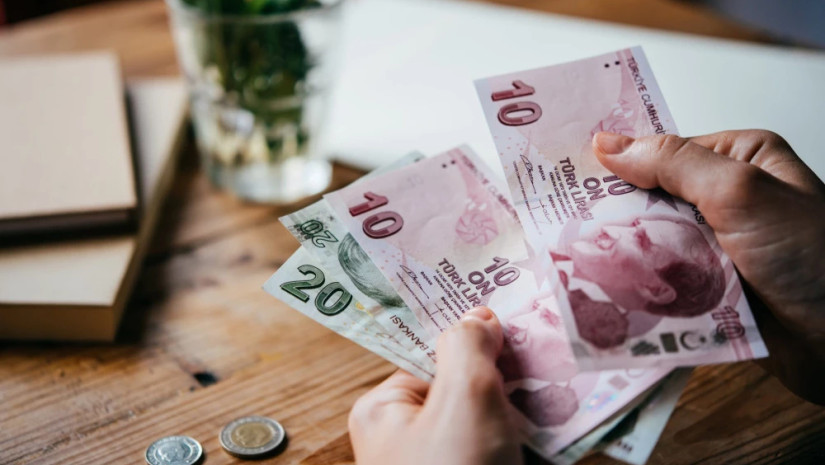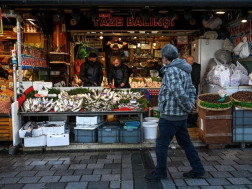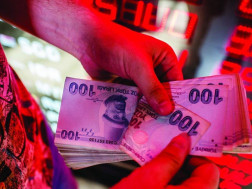Türkiye on Tuesday announced it would raise the monthly minimum wage by another 34% beginning on July 1, marking a second increase this year in an effort to safeguard households from stubborn inflation.
The monthly net minimum salary will increase to TL 11,402 (nearly $483), Labor and Social Security Minister Vedat Işıkhan said in a televised address from the capital Ankara.
"The minimum wage assessment commission completed its work with an agreement between the workers and employers," Işıkhan said. He added tax exemptions for employers would continue.
The increase will help boost purchasing power among workers, over a third of whom earn the minimum wage.
President Recep Tayyip Erdoğan, who won reelection late last month to extend his rule into a third decade, had pledged his government would not allow workers "get crushed under" high inflation.
"On behalf of my nation, I would like to thank all stakeholders, especially the employee and employer sides, who contributed to the determination of the minimum wage within the consensus culture," Erdoğan wrote on Twitter following the announcement.
Inflation touched a 24-year peak of 85.5% in October, prompting Ankara to raise the minimum wage by 100% over the course of last year. It lastly hiked the wage by 54.5% in January to TL 8,500.
Annual inflation eased since then and dipped to 39.6% this May, driven by a government measure providing natural gas free of charge, offsetting price rises in other goods.
The prices surged amid a depreciation in the Turkish lira that came after the country opted for an easing drive that saw its central bank slash its benchmark policy rate to 8.5% currently from 19% in 2021.
The lira has declined some 21% against the U.S. dollar so far this year. It had dropped 44% in 2021 and 30% in 2022.
'Short-term painful' measures
A critic of high borrowing costs, Erdoğan over the past two years endorsed a “new economic model” that prioritizes ultra-low interest rates. The model aimed at achieving price stability by slashing borrowing costs, boosting exports and flipping chronic current account deficits to surpluses.
However, the president has signaled that Türkiye would return to interest rate hikes to combat inflation, revamping policies centered around monetary stimulus.
Erdoğan reshuffled his economic team after reelection last month, bringing in Mehmet Şimşek, the respected veteran policymaker, as treasury and finance minister, and Hafize Gaye Erkan, a former Wall Street banker, as central bank governor.
In his comments last week, Erdoğan expressed his backing for the duo and said Şimşek would take quick steps in coordination with the central bank. Yet, he stressed it was a mistake to suggest he had changed his own stance when it comes to interest rates.
In his first remarks after taking office, the finance chief said Türkiye had no choice but to return to "rational ground" in terms of economic policies.
The central bank, under Erkan, is holding its policy-setting meeting on Thursday and analysts at leading investment banks expect it to start ramping up its one-week repo rate.
Erdoğan's influential ruling coalition partner, Devlet Bahçeli, the chair of the Nationalist Movement Party (MHP), echoed the president's remarks and said their view of the interest rates remained the same, but that the government needed to take "painful" economic measures that included monetary tightening.
"The MHP's view on interest rates is clear: It has not changed. In theory and practice, an increase in interest rates is a political choice that discourages investment, hinders production and makes the need for credit more expensive," Bahçeli told his party members in Parliament on Tuesday.
"However, there are short-term and sometimes painful measures that need to be taken for Türkiye to achieve economic stability, and it has become inevitable to bear the current burden," Daily Sabah reports.
















